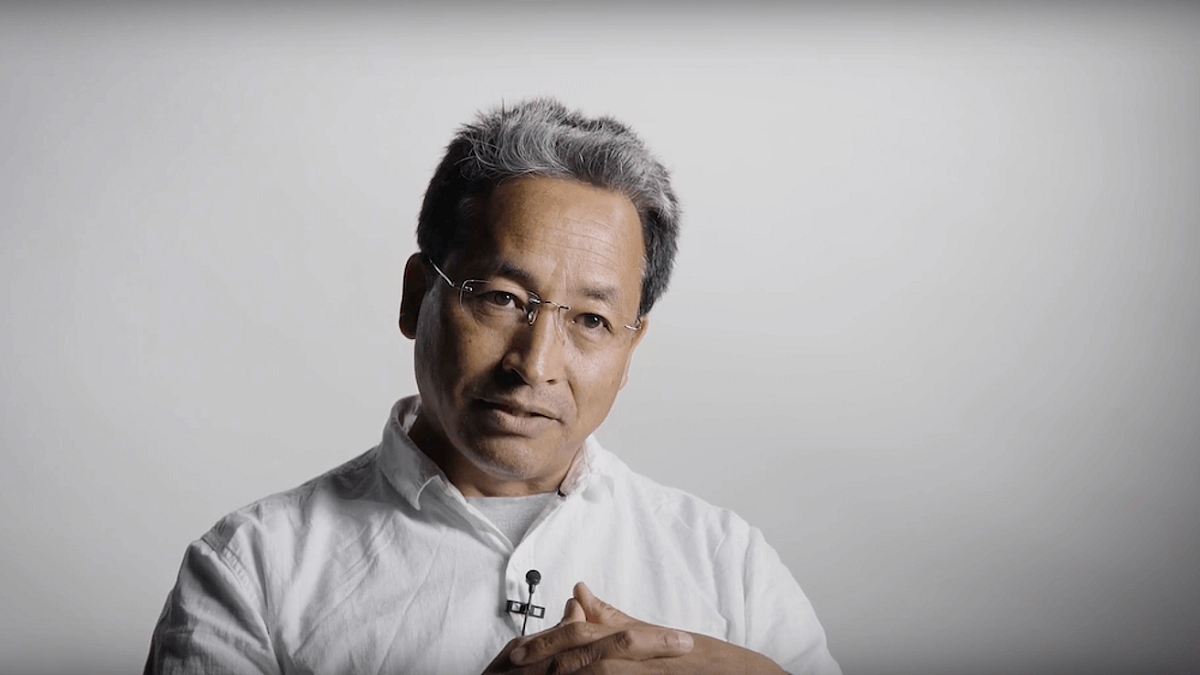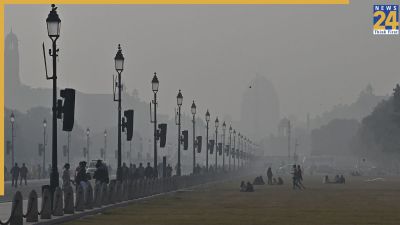– Aasif Suhaf
The prominent innovator and educationist of Ladakh, Sonam Wangchuk, is on a 21-day climate fast to demand 6th Schedule status and statehood for Ladakh. The 57-year-old Wangchuk started his fast on March 6, two days after talks between Ladakh leaders and the Ministry of Home Affairs failed to make any headway on granting statehood and 6th Schedule status to Ladakh.
Political and social groups in Ladakh are demanding Statehood and the 6th schedule to protect the region’s fragile ecology and culture. They are also demanding separate Lok Sabha seats for Kargil and Leh districts. Sonam Wangchuk said that his 21-day fast is inspired by Mahatma Gandhi, stating, “By doing such a fast, we are inflicting pain on ourselves rather than hurting anyone else,” said Wangchuk.
Sonam Wangchuk further stated, “The 21 days of fasting happen to be the longest fast that the father of the nation, Mahatma Gandhi, kept for the independence of India. I want to follow the same peaceful path that Mahatma Gandhi followed.”
Sonam Wangchuk, a prominent social activist and leader in Ladakh, had undertaken the same fast last year as well, known for his courageous act of going on a fast unto death to demand the implementation of the 6th schedule in the region. Wangchuk has now once again started the 21-day climate fast to demand 6th Schedule status and statehood for Ladakh.
The 6th schedule is a provision in the Indian Constitution that grants special autonomy and protection to tribal areas, ensuring their unique cultural and social identity. Wangchuk’s decision to go on a hunger strike was not taken lightly. It was a bold and risky move, but one that he felt was necessary to draw attention to the long-standing demands of the people of Ladakh.
EGINNING OF DAY 6 OF 21 DAYS #climatefast
Our demand for safeguard of the fragile Himalayas and its #indigenouspeople is not just from the government but also from the citizens living in big cities of the world. We urge you to live simpler lives so that there is less carbon… pic.twitter.com/fVIiu84sSW— Sonam Wangchuk (@Wangchuk66) March 11, 2024
“The region has been grappling with issues of identity, autonomy, and development for decades, and the demand for the 6th schedule is seen as a crucial step towards addressing these concerns,” said Wangchuk. The 6th schedule would provide Ladakh with greater autonomy in decision-making, especially in matters related to land, resources, and cultural preservation. It would also ensure that the unique cultural and social fabric of the region is protected and preserved for future generations. Wangchuk’s fast unto death was a powerful statement of his commitment to these ideals and his determination to see them realized.
As news of Wangchuk’s fast spread, it sparked widespread support and solidarity from the people of Ladakh and beyond. Many recognized the significance of his sacrifice and rallied behind him in his quest for justice and equality. Social media platforms were flooded with messages of support, urging the government to heed Wangchuk’s demands and take immediate action to address the grievances of the people of Ladakh.
Also read: Modi Govt’s Masterstroke! CAA Implemented Ahead Of Lok Sabha Polls
Last year, after numerous protests and fasts unto death by Sonam Wangchuk and others, the government was forced to take notice of this agitation. After days of intense negotiations and discussions, authorities had agreed to hold talks with representatives of the people of Ladakh. This victory was a testament to Wangchuk’s unwavering commitment and the power of peaceful protest in bringing about positive change.
However, after a year-long negotiation and meetings didn’t yield any solution, the people of Ladakh and Sonam Wangchuk are back on the roads to protest for their demands. Sonam Wangchuk’s fast unto death for the implementation of the 6th schedule in Ladakh is a powerful symbol of resistance and resilience. His sacrifice galvanized a movement for change and highlighted the importance of preserving the cultural heritage and autonomy of tribal communities.













